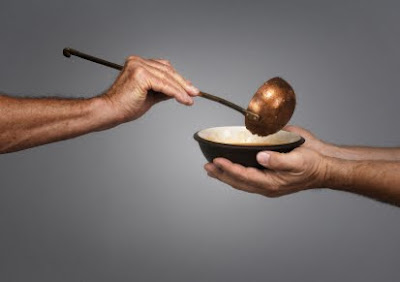I may have shared here that I did the almost-final re-write of my book, Learning to Walk in Freedom. I rewrote entire sections, partially to clarify and partially to add additional information.
I also changed the order of the Freedom Steps:
1. Spend Time with the Freedom Giver
2. Spend Time with Freedom Seekers
3. Embrace Grace
4. Think Like a Free Person
5. Act Like a Free Person
I want to share one of the rewritten sections with you today and in the coming weeks.
The premise of Learning to Walk in Freedom is this: Scripture teaches that freedom is both a one-time gift and a process. The moment we come to Jesus Christ, He gives us freedom through the Holy Spirit, so that we are no longer slaves to sin (Romans 6:17-18), but that freedom is something we need to learn to walk out in our lives.
The order of the Freedom Steps is very strategic (you can read the series in its original form here).
In the presence of God is where we find out who we were created to be. It’s the place God tells us we were worth knowing, worth loving, and worth creating. It is the space where our identity in Him is concreted.
In the presence of others, we find healing. We confess, we receive prayer, and we find healing. We learn how to love, and we can share some of the practical steps of learning to walk in freedom.
As we learn who God is and who we are, in His presence and the presence of others, we can begin to embrace grace on a deeper level. Grace is not only forgiveness of sins, but it is the power to live as children of God. This is where we continue to learn to rest in God and trust in Him to guide us rather than rules & regulations.
Next, we learn to walk in freedom by thinking like a free person. Since Romans 12:2 says, “Let God transform you into a new person by changing the way you think,” we allow God to renew our minds and transform our thoughts, as described in 2 Corinthians 10:4-5. We learn to take every thought captive, and challenge the patterns of thinking that have become so ingrained in us.
Lastly, we act like a free person.
Notice that the title is A Place For Obedience. I added a section on this topic in the midst of Freedom Step 5.
If the word obedience sends shivers down your spine, I pray that you will read this anyway. I will not, at any point, be handing you a list of rules you must adhere to in order to be a good Christian. I have legalism in my background, which is why I did not initially have this section in the book. I decided it’s just too important to leave out.
Please be patience in the weeks to come as I set the foundation that we need in order to accurately address obedience.
Freedom Step 5. Act Like a Free Person
Part of learning to walk in freedom is choosing to act like a free person.
2 Peter 1:3 says that “His [Jesus’] divine power has given us everything we need for life and godliness.” (emphasis mine)
The Bible reiterates this point over and over again in verses such as the following:
Galatians 5:24 says that those who belong to Christ Jesus have crucified the flesh (also called the sinful nature) with its passions and desires. It doesn’t say “are in the process of crucifying the flesh” or “will someday master crucifying the flesh,” but it says it has already been crucified!
Jesus Himself said in John 8:36, “So if the Son makes you free, you will be free indeed.”
Galatians 5:13 says that the reason God called us was to be free, not so that we would struggle through life, just barely holding on till heaven.
Romans 6:6 says, “Knowing this, that our old self was crucified with Him, in order that our body of sin might be done away with, so that we would no longer be slaves to sin.” (NASB) Verse 17 says we used to be slaves to sin, and verse 18 goes on to say that “You have been set free from sin and have become slaves to righteousness.”
If this is really true, if, as a believer, I really am a free person, why do I continue to act as if I am still enslaved to sin?
Shouldn’t it be easier, when we are faced with temptation, to just say no and walk away? Why, in Romans 7 directly after writing all these verses about not being a slave to sin, did even Paul talk about his struggle with doing what he didn’t want to do?
If we are already free – end of story – why do we even need the second half of the New Testament?
I shared in the introduction to this booklet how important it is to remember that freedom is both a one-time gift and a process. I also shared a glimpse into my own struggles with learning to walk in freedom. These are not questions I pose lightly. These are difficult questions, and the implications can be life-changing if we answer them accurately.
Let’s start, then, by considering some analogies that might be helpful.
In the circus, a common way to train elephants is to tie them with strong ropes and chains to a sturdy pole. An elephant is tied to the pole when he is very young and quite small. Naturally, he initially fights being tied to the pole, but eventually resigns himself to the fact that he cannot get free.
As the elephant grows, the pole and rope stay the same size. Though the animal has everything in him that he needs to break free, he stills acts as if he is in bondage to this pole and rope. The elephant is so used to being enslaved to the pole that he never takes the time to try and see if he could get free.
We believers often act the same way. We are so used to responding in a certain manner that we don’t realize we can make different choices.
We can act like a free person.
(I will continue this series next week.)





